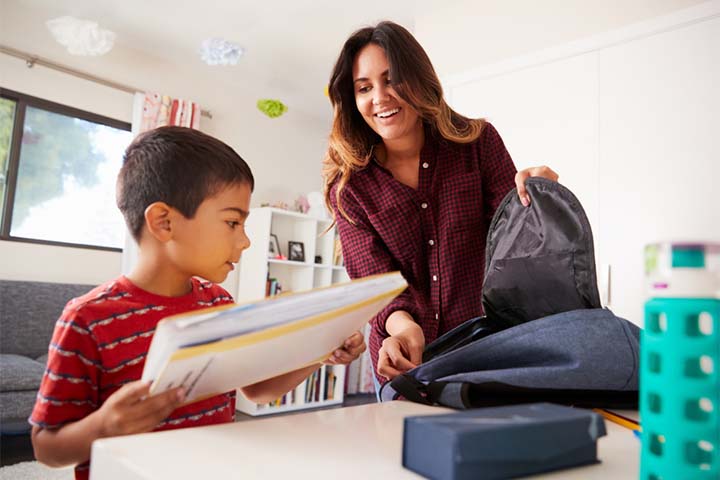
Image: Shutterstock
You must have come across those videos of kids patiently waiting to eat their favorite candy until their parents tell them it’s okay to. Unfortunately, not all kids possess the capability to control themselves and self regulate. Self-regulation skills include a child’s ability to manage their emotions and behaviors in different situations, which is why it is such a crucial skill for your child to pick up. If your child doesn’t get the toy they want because their sibling is playing with it, can they wait? Do they throw a tantrum when they lose a game? Does your child become enraged or completely lose their cool when they can’t find something, such as their shoes or backpack, before school? These are the questions you need to ask yourself when trying to figure out if your child can self regulate. If you realize that the answer to all the questions we’ve listed are yes, then this article will provide you with tips on how to help your child with the development of self-regulation skills. This way your child will be able to learn this skill during childhood and won’t suffer the consequences of a lack of self regulation as an adult.
1. Discuss Self-Regulation In Their Terms
Image: Shutterstock
No more allowing your kids to fight just because they allow other people to make their own decisions and are now happy with them. Many kids will own up to doing something wrong because a sibling made them do it. But this mentality just won’t do. Your child, much like an adult, does not want to admit that they are in the wrong. So any bad behavior cannot stem from them. Instead of allowing them to explain this away, discuss self regulation on their own terms. The conversation about self-regulation and self-control is not a one time occurrence. It is something parents should be discussing with their children regularly. Talk to your child using terms that they understand. If you are working with your toddler on self-regulation, then you will need to convey things very simply.
For example, tell them that if they throw a tantrum unnecessarily when you go to the grocery store they will not be allowed to go to the park right after. Remind the child of the consequence before you even enter the store. Talk about what good behavior looks like and that their reward will be playing in the park after shopping. Kids need your guidance so that they can differentiate between good and bad behavior. This guidance and teaching should start at a young age.
2. Help Your Child Set Goals
Image: Shutterstock
Setting goals is an important part of directing desired and good behavior. For example, if your child has set a goal to learn a particular trick in basketball or get an ‘A’ on a history paper, their desire is directed towards achieving this goal. Therefore, your behavior is regulated by your goals. This means that if an individual doesn’t have any set goals, then the behavior will likely have less regulation or direction towards a positive purpose. So, your goal as a parent is to help your child set reasonable goals that they can be passionate about and can help their self-regulation. For example, if your child has a wonky sleep schedule and can’t seem to wake up on time in the morning, you could discuss a specific goal so that they go to bed sooner in order to reach it. This way they won’t be groggy and sleep deprived in the morning.
3. Give Them Opportunities To Plan
Image: Shutterstock
Planning helps a child to self regulate their behavior as it deals with being able to have emotional control over a specific situation. Planning how to react in a tough situation can help a child with self-regulation. If your child has a tendency toward lack of self-regulation in specific situations, then help them to plan ahead. For example, if your child doesn’t like the end of playtime or screen time and throws a tantrum when you cut them off all of a sudden, give them a couple of warnings so that they can plan for what they are going to do when screen time ends. If you are going to a place without any connectivity for the weekend let them know so that they can plan a couple of activities they’d like to do. Help them to plan ahead for the decisions that they must make in tough situations. When they make bad choices or plan poorly, it is also an opportunity for you to discuss how they could do things differently next time.
Everything is a learning curve for your little ones. So be patient as they try to self regulate themselves. We hope these tips help you help them. Happy parenting!















